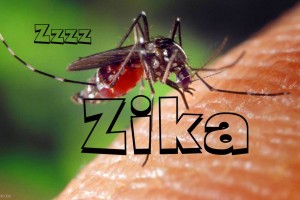- Home
- Editorial
- News
- Practice Guidelines
- Anesthesiology Guidelines
- Cancer Guidelines
- Cardiac Sciences Guidelines
- Critical Care Guidelines
- Dentistry Guidelines
- Dermatology Guidelines
- Diabetes and Endo Guidelines
- Diagnostics Guidelines
- ENT Guidelines
- Featured Practice Guidelines
- Gastroenterology Guidelines
- Geriatrics Guidelines
- Medicine Guidelines
- Nephrology Guidelines
- Neurosciences Guidelines
- Obs and Gynae Guidelines
- Ophthalmology Guidelines
- Orthopaedics Guidelines
- Paediatrics Guidelines
- Psychiatry Guidelines
- Pulmonology Guidelines
- Radiology Guidelines
- Surgery Guidelines
- Urology Guidelines
Zika unlikely to get worse due to prior dengue fever: Study

WASHINGTON: People who are infected by Zika virus after having dengue fever do not appear to become more severely ill than those who have never had dengue, a study suggests.
"Our results show this aggravation does not occur, or occurs only very rarely and can't be detected by a study such as this," said Mauricio Lacerda Nogueira, Professor at the Sao Jose do Rio Preto Medical School (FAMERP) in Brazil.
Researchers studied 65 people who live in and around Sao Jose do Rio Preto, where dengue is endemic and there was a particularly rapid outbreak of Zika during the 2016 epidemic.
During the period when the Zika epidemic was at its most intense, between January and July 2016, researchers collected blood samples from 65 people who presented with fever and symptoms of dengue or Zika at the emergency unit of the reference hospital.
Analysis of the viral genetic material found in these blood samples showed 45 patients had been infected by Zika and 20 by dengue.
The tests also showed 78 per cent of those with Zika (35 people) and 70 per cent of those with dengue had been infected previously by dengue virus.
Shortly after the Zika epidemic emerged, it began to be suspected that prior infection by dengue could lead to more severe clinical manifestations of Zika, similar to those of dengue hemorrhagic fever, such as bleeding under the skin, a large decrease in blood pressure.
About 90 per cent of patients with dengue hemorrhagic fever have previously had dengue and are infected by a different subtype (there are four subtypes of dengue virus), researchers said.
The team measured the numbers of Zika virus copies in the blood of patients previously infected by dengue and compared them with the numbers found in the blood of patients who had never been exposed to dengue.
If prior dengue infection facilitated the multiplication of Zika, the number should be much higher in the former group, but the researchers found both groups had similar viral loads, researchers said.
The study was published in the journal Clinical Infectious Diseases.

Disclaimer: This site is primarily intended for healthcare professionals. Any content/information on this website does not replace the advice of medical and/or health professionals and should not be construed as medical/diagnostic advice/endorsement or prescription. Use of this site is subject to our terms of use, privacy policy, advertisement policy. © 2020 Minerva Medical Treatment Pvt Ltd